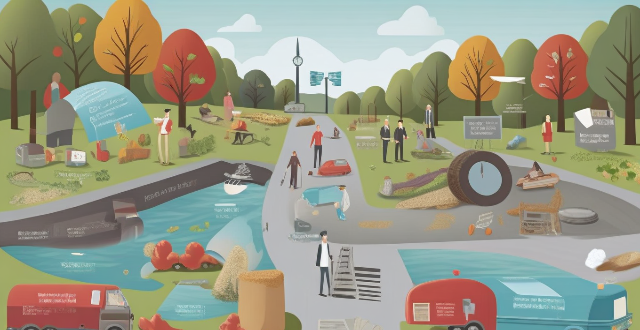The implications of climate change negotiations for future generations are significant and multifaceted, affecting various aspects of life, including the environment, economy, society, and politics. Effective negotiations can lead to preserved natural ecosystems, mitigation of extreme weather events, job creation in renewable energy sector, reduction in energy costs, improved public health, enhanced quality of life, global cooperation, and leadership and innovation. These benefits highlight the importance of prioritizing the interests of future generations in climate change negotiations to ensure a sustainable and equitable world for all.

Implications of Climate Change Negotiations for Future Generations
Climate change negotiations, such as those held under the United Nations Framework Convention on Climate Change (UNFCCC), have far-reaching implications for future generations. These negotiations aim to mitigate the effects of climate change and adapt to its impacts, ensuring a sustainable future for all. Here are some key implications:
Environmental Impact
Preservation of Natural Ecosystems
Future generations will benefit from preserved natural ecosystems if effective climate change negotiations lead to reduced greenhouse gas emissions and increased efforts to protect biodiversity. This includes:
- Forests: Less deforestation due to reduced demand for land conversion and improved forest management practices.
- Oceans: Healthier marine ecosystems through reduced ocean acidification and overfishing.
- Wildlife: Protection of endangered species and their habitats, preventing extinctions caused by climate change.
Mitigation of Extreme Weather Events
Effective climate change negotiations can help reduce the severity and frequency of extreme weather events like hurricanes, floods, and droughts, making the world a safer place for future generations.
Economic Implications
Job Creation in Renewable Energy Sector
Investments in renewable energy sources like solar, wind, and hydroelectric power can create new job opportunities, fostering economic growth and stability for future generations.
Reduction in Energy Costs
Transitioning to renewable energy sources can lead to lower energy costs in the long run, reducing the financial burden on future generations.
Social Implications
Improved Public Health
Reducing air pollution through cleaner energy sources can significantly improve public health, reducing the incidence of respiratory diseases and other health issues for future generations.
Enhanced Quality of Life
Effective climate change negotiations can lead to better living conditions through improved air quality, access to clean water, and reduced risk of natural disasters, enhancing the overall quality of life for future generations.
Political Implications
Global Cooperation
Successful climate change negotiations require global cooperation, fostering international relationships and promoting peace among nations. This legacy of cooperation can benefit future generations in various aspects of global governance.
Leadership and Innovation
Addressing climate change challenges requires leadership and innovation, inspiring future generations to continue finding sustainable solutions to global problems.
In conclusion, the implications of climate change negotiations for future generations are multifaceted, affecting environmental preservation, economic prosperity, social well-being, and political stability. It is crucial that these negotiations prioritize the interests of future generations to ensure a sustainable and equitable world for all.